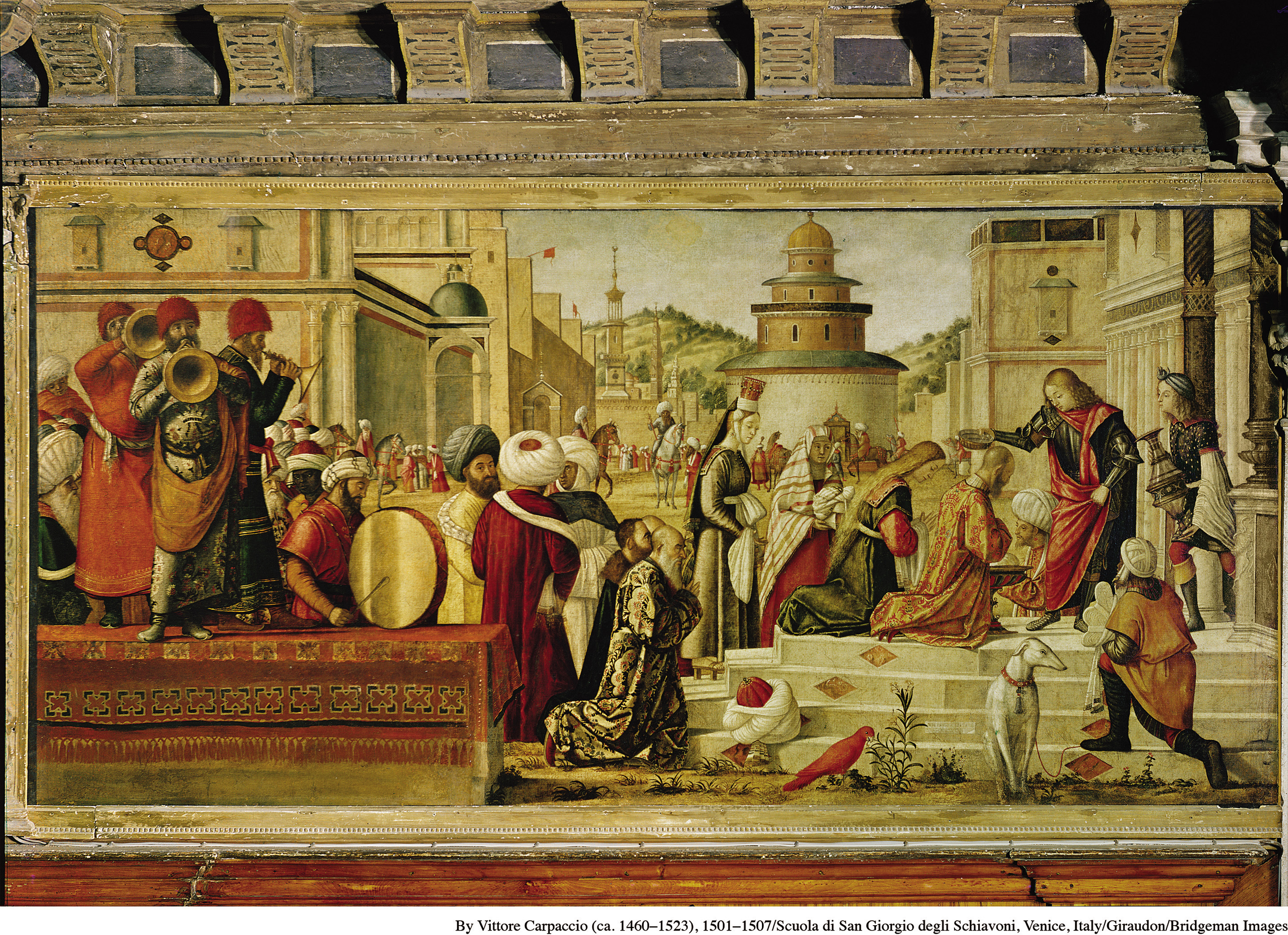Ways of the World with Sources
Printed Page 542
Source 12.4
Saint George Baptizes the Pagans of Jerusalem
Despite the fluid relationship of Renaissance Europe with the world of Islam, the Ottoman Empire, apparently expanding inexorably, was a growing threat to Christian Europe, and Islam was a false religion to many Christians. Those themes too found expression in the art of the Renaissance. Source 12.4 provides an example. Painted during the first decade of the sixteenth century by the Venetian artist Vittore Carpaccio, it reflects the popular “orientalist” style with its elaborate and exotic depiction of Eastern settings, buildings, and costumes. This particular painting was part of a series illustrating the life of Saint George, a legendary soldier-
The setting for Source 12.4 is Muslim-

- What posture toward the Islamic world does this painting represent? Does it convey resistance to Ottoman expansion, or does it hold out the hope for the peaceful conversion of that powerful empire?
- What is the significance of the large Ottoman turban at the foot of the steps?
- Why might the legend of Saint George provide a potent symbol for European interaction with the Islamic world in the circumstances of the early sixteenth century?
- Compare this urban scene with that of Source 12.2. What common features do you notice? Apart from any religious meanings, what do these paintings suggest about Venetian interests in the Islamic world?